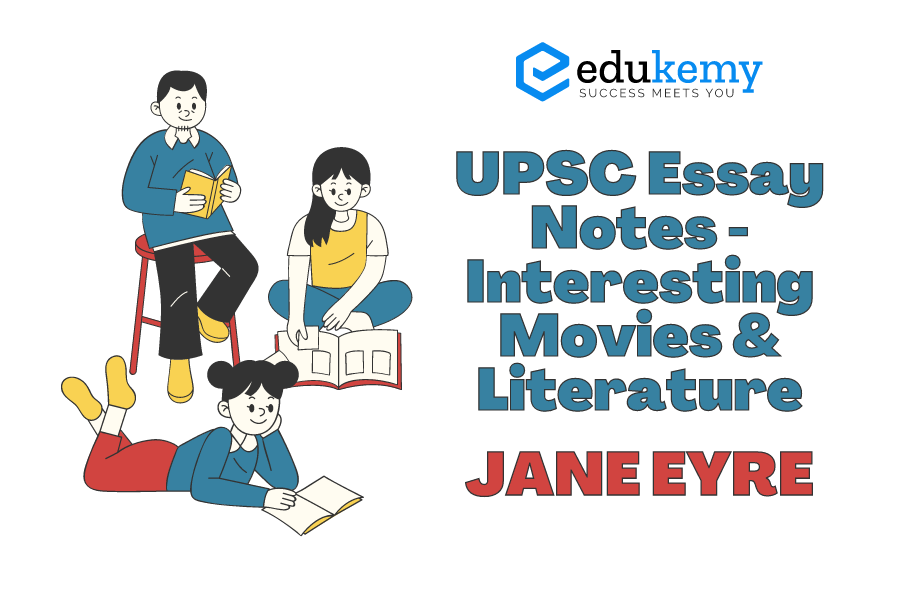
Exploring the intricacies of human nature, societal norms, and the eternal quest for identity, Charlotte Brontë’s timeless classic “Jane Eyre” stands as a cornerstone of English literature. With its compelling narrative, rich character development, and exploration of complex themes such as love, independence, and social class, “Jane Eyre” transcends the boundaries of time and continues to captivate readers across generations. From its humble beginnings to its triumphant conclusion, Brontë’s masterpiece invites readers into the tumultuous world of its titular protagonist, offering profound insights into the human condition while challenging prevailing notions of morality and societal expectations. As we delve into the depths of “Jane Eyre,” we are not merely spectators but active participants in a journey of self-discovery, empathy, and resilience, making it an essential addition to any literary enthusiast’s repertoire.
Jane Eyre is a novel with autobiographical undertones written by Charlotte Bronte. The novel focuses on its protagonist’s moral and spiritual development through an intimate first-person narrative, where actions and events are coloured by a psychological intensity. The book contains elements of social criticism and approaches the topics of class, sexuality, religion, and feminism.
The novel is named after the central character of the work. It is an inward journey from a girl in her early childhood to a welllearned woman. The book has 5 different sections covering different stages of Jane’s life. During childhood, she is abused physically and verbally by her aunt. However, she does not give up and decides to move ahead in life. She then becomes a governess and starts to teach at Thornfield House. That is the time when she meets Mr. Rochester (a wealthy man) who later shows his interest in Jane. But she wants an identity for herself and does not accept his proposal upright. Unlike most of the women of her time who had sole purpose of getting married she takes her time.
Contents
- 1 Message
- 2 Frequently Asked Questions (FAQs)
- 2.1 1. Question: What is the significance of including Jane Eyre in UPSC Essay Notes on Interesting Movies & Literature?
- 2.2 2. Question: How does “Jane Eyre” contribute to understanding gender dynamics in society?
- 2.3 3. Question: What makes “Jane Eyre” a compelling literary work for aspirants preparing for the UPSC examination?
- 2.4 4. Question: How does “Jane Eyre” address issues of social justice and morality?
- 2.5 5. Question: What lessons can aspirants draw from “Jane Eyre” in their journey towards the civil services?
- 3 To get free counseling/support on UPSC preparation from expert mentors please call 9773890604
Message
- The idea of equality of men and women has been deeply emphasized on. Jane Eyre, despite all the class and financial struggle, decides to live her life on her own terms.
- Always appreciate your self-worth and never let anyone disrespect you.
- Be generous all the time. Life is already full of suffering, just stay humble and wait for your turn.
- Never hold a grudge against or resentment towards anyone even if they hurt you badly. Forgive people even if they do not acknowledge your efforts.
- Struggle is momentary, rewards after struggle are promising.
- Never settle for less.
Frequently Asked Questions (FAQs)
1. Question: What is the significance of including Jane Eyre in UPSC Essay Notes on Interesting Movies & Literature?
Answer: “Jane Eyre” by Charlotte Brontë is a seminal work of literature that delves into themes such as social class, gender equality, and individualism. Its inclusion in UPSC Essay Notes underscores its enduring relevance and its potential to serve as a source of inspiration for aspirants exploring complex societal issues.
2. Question: How does “Jane Eyre” contribute to understanding gender dynamics in society?
Answer: “Jane Eyre” challenges traditional gender roles by portraying its protagonist as a strong-willed, independent woman who defies societal expectations. Through Jane’s journey, the novel explores themes of feminism, resilience, and the quest for personal identity, offering valuable insights into the evolving dynamics of gender in society.
3. Question: What makes “Jane Eyre” a compelling literary work for aspirants preparing for the UPSC examination?
Answer: “Jane Eyre” is not merely a classic romance but also a profound exploration of human nature and societal norms. Its richly developed characters, nuanced narrative, and timeless themes make it a valuable resource for aspirants seeking to engage with diverse perspectives and sharpen their analytical skills.
Answer: Through Jane’s experiences, “Jane Eyre” confronts issues of social injustice, including poverty, exploitation, and the limitations imposed by class distinctions. The novel underscores the importance of empathy, integrity, and moral courage in challenging societal inequities and advocating for positive change.
5. Question: What lessons can aspirants draw from “Jane Eyre” in their journey towards the civil services?
Answer: “Jane Eyre” offers aspirants valuable lessons in resilience, integrity, and the pursuit of justice. By embodying Jane’s determination, moral fortitude, and commitment to personal growth, aspirants can glean insights into effective leadership, ethical governance, and the transformative power of individual agency.
To get free counseling/support on UPSC preparation from expert mentors please call 9773890604
- Join our Main Telegram Channel and access PYQs, Current Affairs and UPSC Guidance for free – Edukemy for IAS
- Learn Economy for free- Economy for UPSC
- Mains Answer Writing Practice-Mains Answer Writing
- For UPSC Prelims Resources, Click here

